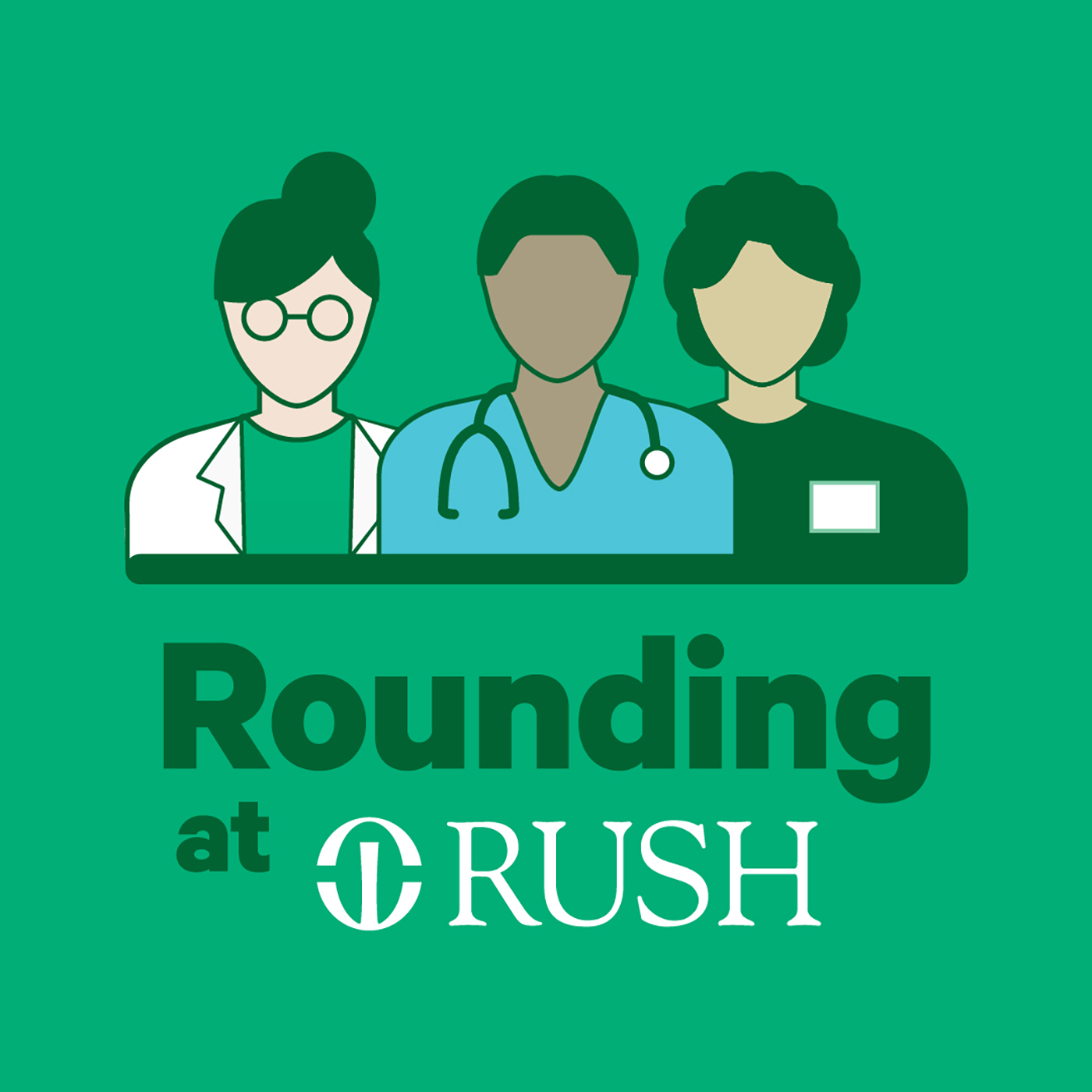
Rounding at Rush spotlights the work of physicians across the Rush University System for Health, comprised of two community hospitals and Rush University Medical Center, which is ranked by U.S. News & World Report as one of the nation’s best hospitals. As a leading health system, Rush delivers outstanding patient care, offers the latest treatments, educates the next generation of health care providers, and pursues groundbreaking research. Accreditation Statement In support of improving patient care, Rush University Medical Center is jointly accredited by the Accreditation Council for Continuing Medical Education (ACCME), the Accreditation Council for Pharmacy Education (ACPE), and the American Nurses Credentialing Center (ANCC), to provide continuing education for the health care team. This activity is being presented without bias and with/without commercial support. Designation Statement Rush University Medical Center designates this internet enduring material activity for a maximum of One (1) AMA PRA Category 1 Credit(s)™. Physicians should claim only credit commensurate with the extent of their participation in the activity. Disclosures The course director(s), planner(s), faculty and reviewer(s) of this activity have no relevant financial relationships to disclose.
Episodes
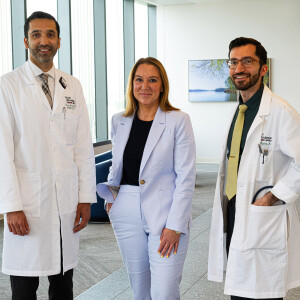
Thursday Jun 05, 2025
RUSH MD Anderson’s Multidisciplinary Care of Non-Small Cell Lung Cancer
Thursday Jun 05, 2025
Thursday Jun 05, 2025
RUSH MD Anderson Cancer Center’s team of medical oncologists, thoracic surgeons and radiation oncologists works collaboratively to provide patients with advanced, comprehensive care for non-small cell lung cancer.
In this episode of Rounding at Rush, thoracic surgeon Nicole Geissen, DO, medical oncologist Koosha Paydary, MD, and radiation oncologist Gaurav Marwaha, MD, discuss their and other RUSH MD Anderson clinicians’ efforts diagnosing and treating non-small cell lung cancer.
In particular, they talk about RUSH MD Anderson’s novel lung cancer screening program, as well as innovative new therapies RUSH MD Anderson clinicians are using to improve patient outcomes.

Monday May 05, 2025
Expert Neuro-Emergency Transfer Care at Rush With Rajeev Garg, MD
Monday May 05, 2025
Monday May 05, 2025
Rush University Medical Center’s neurocritical care team treats patients with complex, emergent neurological conditions, providing them with advanced care that is available 24 hours a day, seven days a week.
In this episode of Rounding at Rush, Rajeev Garg, MD, chief of the Division of Neurocritical Care at Rush, talks about how Rush clinicians collaborate closely with stroke specialists and neurosurgeons to treat patients with a range of severe neurological injuries, including aneurysmal subarachnoid hemorrhage, intracerebral hemorrhage, large ischemic strokes, traumatic brain injuries, status epilepticus and spinal cord injuries.
“Time is brain. The longer an injured brain remains without treatment, the worse the damage and the worse the outcomes. As neurointensivists, our goal is to limit damage to the brain and provide patients the best possible outcomes for recovery.”

Monday May 05, 2025
Monday May 05, 2025
Rush cardiologists use sophisticated diagnostic and therapeutic tools and work in a collaborative, interdisciplinary manner to provide superior outcomes for patients with advanced heart failure.
Featured in this episode of Rounding at Rush are Tisha Suboc, MD, a cardiologist and the medical director of Advanced Heart Failure at Rush, and Karolina Marinescu, MD, a cardiologist and the director of the Infiltrative Cardiomyopathy Program at Rush.
“When we see patients, we see them on a continuum,” says Dr. Suboc: When we see them in the hospital, the care doesn’t just stop once they’re discharged. We take care of them from the time they’re in hospital to when they're discharged and follow them long-term.
It’s not just the patients’ heart failure team; they’re seen by their cardiologist, endocrinologist, electrophysiologist and primary care doctor. The multidisciplinary approach we use at Rush has brought us success in managing these types of patients.”
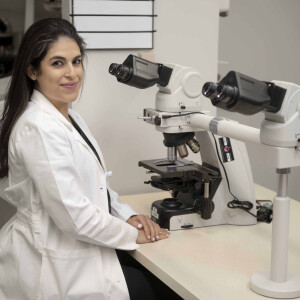
Monday May 05, 2025
Mohs Micrographic Surgery at RUSH MD Anderson With Mariam Mafee, MD
Monday May 05, 2025
Monday May 05, 2025
Highly skilled clinicians at RUSH MD Anderson Cancer Center diagnose, treat and prevent all types of skin cancer and other skin conditions. One treatment tool at their disposal is Mohs micrographic surgery, an advanced, minimally invasive and highly effective treatment for skin cancer.
In this podcast, Mariam Mafee, MD, the division chief of Dermatological Surgery at Rush University Medical Center and a Mohs micrographic surgeon at RUSH MD Anderson, discusses how and when to use Mohs surgery, its advantages, as well as how this type of surgery continues to evolve.
“We use appropriate use criteria (AUC), which helps separate less severe from more severe cases of skin cancer. This helps to maximize the utilization of Mohs surgery. We don't use Mohs surgery for every single skin cancer patient or every single skin cancer case. There are times where it really makes sense to be used and times where it doesn't. AUC, which you can find on an app, is a great help with this.”

Wednesday Mar 19, 2025
Wednesday Mar 19, 2025
RUSH MD Anderson Cancer Center’s Breast Cancer Risk Assessment and Personalized Screening Program incorporates sophisticated diagnostic and therapeutic tools that Lisa Stempel, MD, and her colleagues use to determine the most effective care pathway for patients who are at high risk for breast cancer.
Dr. Stempel is a diagnostic radiologist at RUSH MD Anderson. She is chief of the Division of Breast Imaging and director of the High-Risk Cancer Screening Program at RUSH MD Anderson.
“Screening mammography is a great model we can use for early detection for other types of cancers. For example, if we can catch breast cancer in its early stages, say stage 0 or 1, there’s a 99.9% cure rate. Even if it's stage 2, we have a 93% cure rate. Early detection applies to almost all types of cancers, too. What we’ve learned is that with mammography and the addition of supplemental screening tests, we can find breast cancer at the earliest stages.”
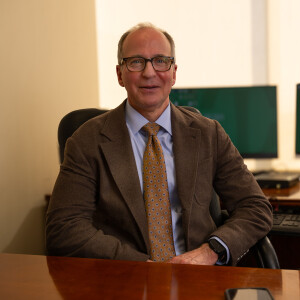
Monday Mar 10, 2025
Monday Mar 10, 2025
The Rush Neurosurgery program is a nationally recognized leader in neurosurgical care, incorporating the most advanced surgical and nonsurgical therapies to treat brain, spine and nervous system conditions. Rush neurosurgeons collaborate with neurologists, neuroradiologists, physiatrists and otolaryngologists to address these conditions, providing patients with individualized and disease-specific approaches in several subspecialty clinics and centers across Chicago and surrounding communities.
Vincent Traynelis, MD, is the interim chair of the Department of Neurosurgery at Rush University Medical Center. He is also the vice chair of academic affairs and the director of the Spine and Peripheral Nerve Section at Rush.
“At Rush, our surgeons are highly trained and specialized in performing skull base surgery. They have the skill set to handle complex tumors and they work hand –in hand with our colleagues in otolaryngology.
They discuss these tumors preoperatively. They consider all of the options. They have the latest equipment. And I believe what sets us apart is that we have the right people with the right focus who can get along and work well together.”
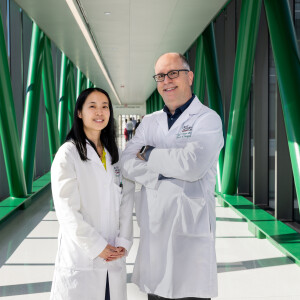
Wednesday Feb 05, 2025
Wednesday Feb 05, 2025
RUSH MD Anderson Cancer Center offers leading-edge treatments for GI cancers, including targeted therapies, immunotherapy, chemotherapy, and minimally invasive surgical options. Our multidisciplinary team of medical oncologists, gastroenterologists, surgical oncologists, colorectal surgeons and interventional radiologists work together to provide our patients with tailored treatment plans to each patient’s specific diagnosis and needs.
Audrey Kam, MD, is the director of GI medical oncology at RUSH MD Anderson, as well as the research director of GI medical oncology at RUSH MD Anderson. She specializes in treating gastrointestinal cancers including colorectal, esophageal, gastrointestinal, liver, pancreatic and stomach cancers.
Sam Pappas, MD, is the Division Chief of Surgical Oncology at Rush University Medical Center. He specializes in treating upper abdominal cancers, including ones in the esophagus, stomach, pancreas, liver and bile duct.
“We love collaborating in immediate proximity to each other within RUSH MD Anderson. This helps to ensure coordinated, multidisciplinary discussions that are patient-focused,” explains Dr. Pappas.
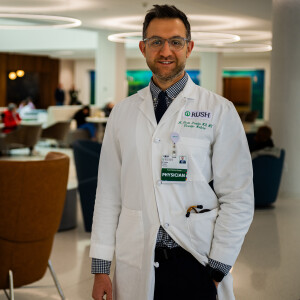
Friday Jan 31, 2025
Friday Jan 31, 2025
In this episode, Ihsan Kaadan, MD, MS, discusses how he and Rush clinicians provide tailored, wraparound care for patients with peripheral artery disease (PAD) and chronic venous insufficiency. We also profile Dr. Kaadan’s unique role in guiding Rush’s multidisciplinary approach to treat these conditions, where he works with cardiologists, vascular surgeons and interventional radiologists to deliver optimal patient care.
Dr Kaadan is a vascular medicine specialist in the Rush University System for Health; he evaluates and treats patients with complex arterial and vein disorders.
“It’s a one-stop shop at Rush, which sets us apart. A patient can come to the vascular medicine clinic, get evaluated for their disease, then start treatment either with me or one of my colleagues in cardiology or interventional radiology. Patients can also receive cardiac rehab and occupational and physician therapy, so they’re supported throughout their entire experience
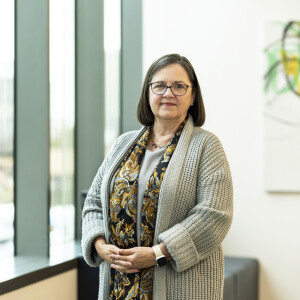
Wednesday Jan 15, 2025
Wednesday Jan 15, 2025
At RUSH MD Anderson Cancer Center, oncologists provide patient-centered, cutting-edge care, such as immunotherapies, targeted therapies and minimally invasive surgeries for the treatment of lung cancer. In addition, RUSH MD Anderson clinicians offer patients access to some of the most innovative clinical trials available nationwide.
In this episode, Helen Ross, MD, discusses some of the exciting new clinical trials that Rush is participating in, as well as rising rates of lung cancer in young adults and how to best care for them.
Helen Ross, MD, is a thoracic medical oncologist and an expert in the care of patients with cancers of the chest, including lung cancers, mesothelioma and thymic cancers. Dr. Ross is director of research and clinical trials at RUSH MD Anderson. She is also a professor in the Department of Internal Medicine and serves as interim chief of the Division of Hematology, Oncology and Cellular Therapy.
“We’re only opening clinical trials onsite that are the right fit for our patients. We have an expedited review at RUSH MD Anderson to cut activation time and are working to further reduce that time to bring those trials more quickly to our patients.”
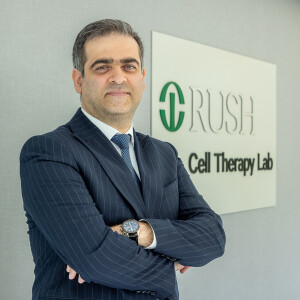
Friday Oct 04, 2024
Friday Oct 04, 2024
The Rush Cell Therapy Lab provides stem cell transplants, bone marrow transplants and other advanced cell therapy treatments for patients with leukemia, lymphoma, multiple myeloma, and other hematological malignancies. In addition, the lab will soon function as a contracted manufacturing facility partner for the production and quality control and release of cell and gene therapies, representing a significant leap in decentralized hospital based cellular therapeutic manufacturing.
Mahzad Akbarpour, PhD, is the Director of the Rush Cell Therapy Lab at RUSH MD Anderson Cancer Center and is also an Assistant Professor of Internal Medicine in the Division of Hematology, Oncology, and Cell Therapy.
“When CAR-T cells first came on the market a few years ago, Rush was one of the first centers in the nation to provide this therapy to its patients. We’ve also been involved in several clinical trials to advance care and we’ll soon be able to manufacture our own cells on-site.”
